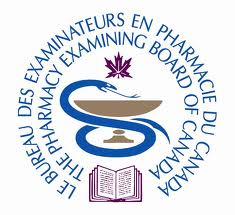to be hospital pharmacist 15
The first few months of the training program can be very intense and
it is not unusual to think that you did not learn anything useful at university;
this of course is not the case because, otherwise,
it is not unusual to think that you did not learn anything useful at university;
this of course is not the case because, otherwise,
You will often be very tired at the end of the working week because everyone
is giving you extra tasks to do and you have to learn about such things as
drugs and conditions about which you know nothing. Even if you are in a
rotation that you do not like, you will find that there are things for you to
learn. Pre-regs who have a student mentality may expect people to provide
work and not think in terms of what extra contribution they could make.
They sit there and expect someone to come and speak to them and tell them
what to do next. Guess what, that is not going to happen in a busy working
environment. The same pre-regs often complain to their tutors that they did
not benefit from that particular rotation. This is not to say that there are no
difficult rotations, just that you make what you want of your pre-reg time.
By the middle of the pre-reg year, you will have started to work out
your own way of completing the puzzle. Some pre-regs start at the middle and
build up a picture, whereas others will find the pieces around the edges
and start putting these together. In this way you start to identify the shape
and dimensions of the puzzle and start looking inwards for the missing pieces
that correspond to the missing pieces of skills and knowledge.
your own way of completing the puzzle. Some pre-regs start at the middle and
build up a picture, whereas others will find the pieces around the edges
and start putting these together. In this way you start to identify the shape
and dimensions of the puzzle and start looking inwards for the missing pieces
that correspond to the missing pieces of skills and knowledge.
You start to realise how much there is for you to learn. For the first half
of the year you learn lots of things, whereas somewhere in the middle you learn
how to apply this knowledge. Some of you may have a crisis of confidence
once you realise what is involved in terms of being a pharmacist, and the
responsibilities and accountabilities that go with this. You may have learned
these at university but it wouldn’t have seemed as real then as it does now.
responsibilities and accountabilities that go with this. You may have learned
these at university but it wouldn’t have seemed as real then as it does now.
This period of time is usually when you start to consolidate what you
know. When you come into a new rotation you have a fair idea of what to do
and whom to ask. You are also at ease with the fact that you are starting again
from the beginning, because your next supervisor has to reassess you to get an
idea of your skills and abilities. You progress through the initial requirements
fairly quickly because you have been through these before and know what to
do. An example of this can be taking medication histories: you know what to
do but have to prove to your supervisor that you can do this to his or her
satisfaction.
You will have encountered many problems before but in the past you
may have referred them to someone else; now you feel more able to tackle
these problems yourself, safe in the knowledge that someone else is checking
you and what you have done or said.
In the middle of the year you undergo your 26-week progress review at
which your tutor informs you whether or not you are on the right track. If you
are, this is the time to think about your role as a pre-reg. We often say to our
pre-regs that the second half of the year is less about being a pre-reg and more
about being a pharmacist, i.e. the pre-reg part of the title is now less important
than the pharmacist part, bearing in mind that you are still not allowed
to call yourself a pharmacist.As you approach the end of the training year,
being a pharmacist is becoming a reality. This can be quite scary even if you thought that it would have been a fairly easy transition, mainly because you start to realize the
responsibilities of being a pharmacist – your signature is going to count for
something now.
responsibilities of being a pharmacist – your signature is going to count for
something now.
In an ideal world, completing the pre-reg year and starting life as a
professional pharmacist should be an easy transition; in many cases it is and
can be quite traumatic because the safety net of someone checking your
work has gone. You may find that you regress to what you were like when
you started your pre-reg year, in that you start to doubt yourself and have to
check the BNF (British National Formulary), check the BNF and then check
it again, to make sure that the dose on the prescription is what it should be!
This inevitably slows the process down and the staff around you may get
frustrated with your slowness, but it is always better to get it right than to get
it done quickly!
Depending on where you work after your pre-reg, your first few weeks
can be very different. Some pre-regs take a short holiday before starting real
work and others dive in as soon as they can.



Comments